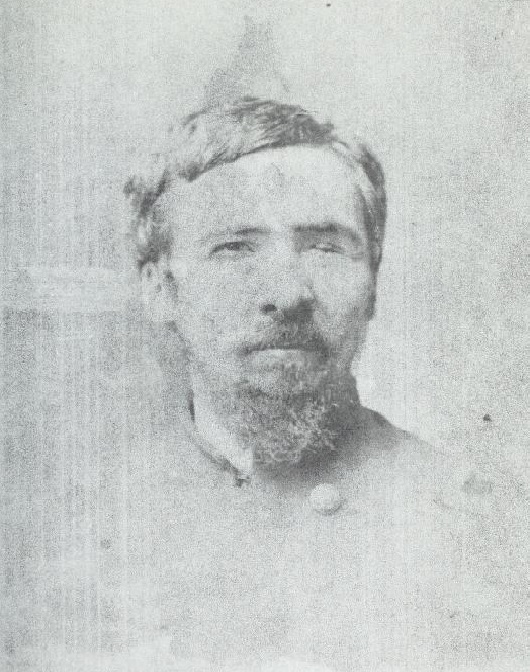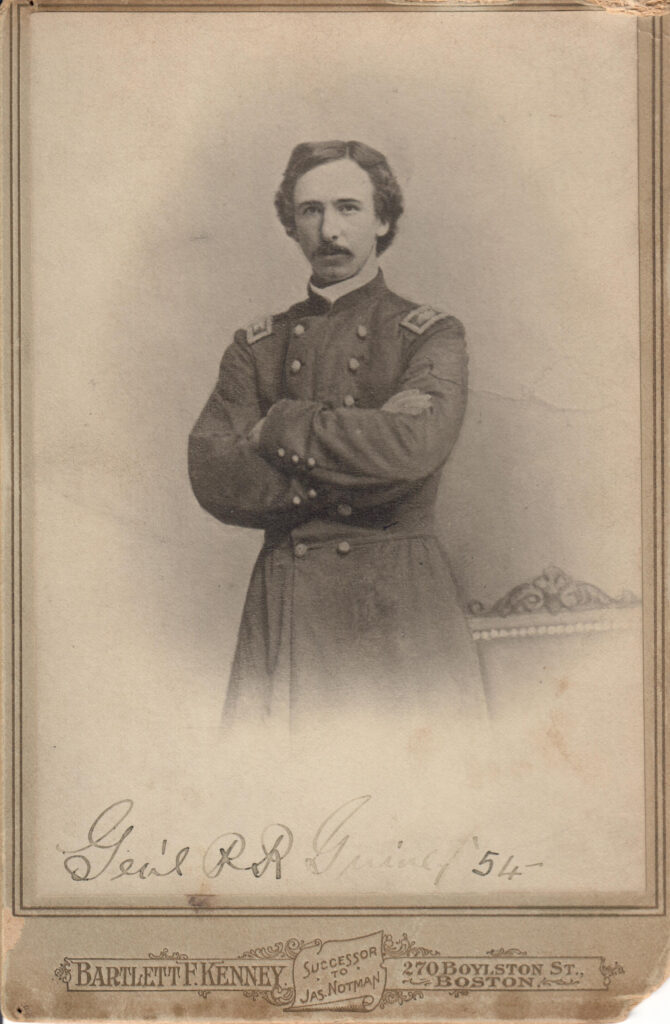By Graham Warder, Ph.D., Keene State College
Born in 1835 in Tipperary, Ireland, Patrick Guiney was brought by his father to New Brunswick, Canada, as a young child. As a teenager he worked in a rope factory in Portland, Maine, and as a machinist in Lawrence, Massachusetts, and attended Holy Cross University for a short time before studying for the Bar and becoming a lawyer.
At the start of the Civil War, Guiney helped to recruit Irish Americans for the 9th Massachusetts Infantry Regiment. When the regiment’s first commander was killed in action in July 1862, Guiney succeeded him colonel. Guiney would take part some of the war’s fiercest battles, including Antietam, Fredericksburg, and Chancellorsville. At the Battle of the Wilderness on May5, 1864, a sharpshooter sent a Minié ball into his face, destroying his left eye. Expected to die from his wounds, he somehow survived after insisting on an operation. Discharged from the U.S. Volunteers on June 21, 1864, he went home to be cared for by wife, Jeanette, and assisted by a disability pension of $22.50 a month.
According to a biographer, “his fine constitution shattered, his spirited beauty ruined by the loss of his left eye and the deep scar in the cheek, with only his courage and his wife’s neverfaltering care to sustain him, he patched up, in a measure, his civil existence.” He returned to work as a lawyer but for the rest of his life endured pain, breathing problems, and dizziness. From 1869 until his sudden death in 1877, Guiney worked as registrar of the Probate Court of Suffolk County, Massachusetts.

Sources:
Christian G Samito. Commanding Boston’s Irish Ninth: The Civil War Letters of Colonel Patrick R. Guiney, Ninth Massachusetts Volunteer Infantry. New York: Fordham University Press, 1998.
Louise Imogen Guiney, “General Guiney,” in The Holy Cross Purple, 1896, 37-43.
